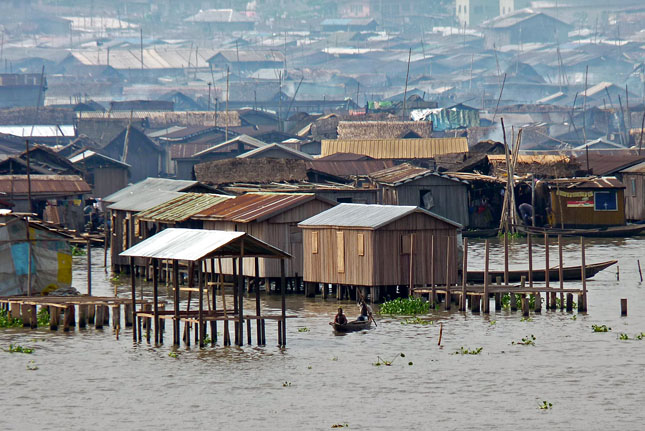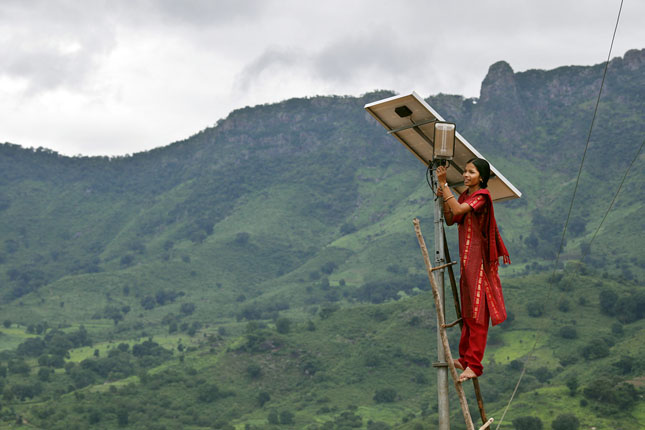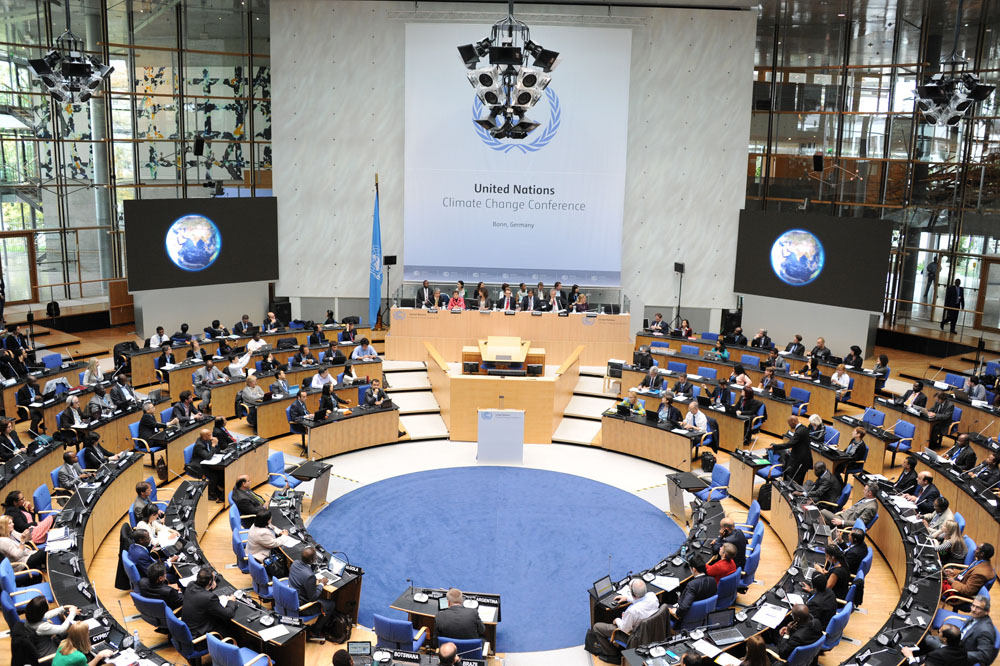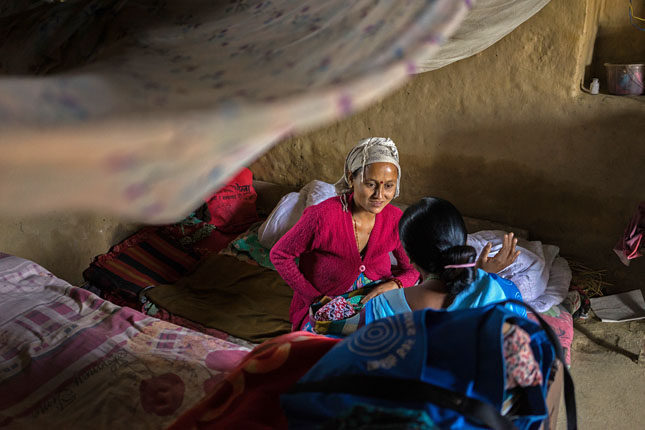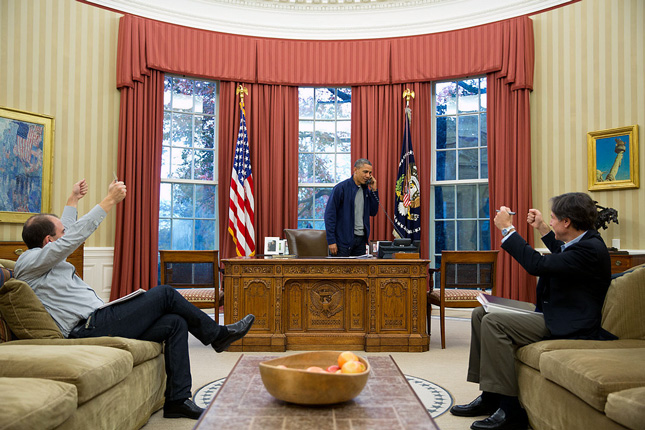-
Falling Costs, Rising Opportunities: Scaling Up Renewable Energy in the Developing World [Part Two]
›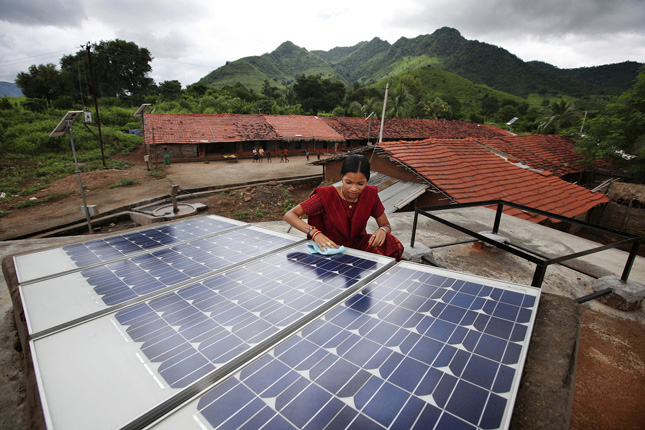
“Clean energy has gone from being the ‘right thing to do’ in combating climate change, to being the most cost-effective option for many energy-insecure countries,” said Carrie Thompson, deputy director of the U.S. Agency for International Development’s Regional Development Mission for Asia, during a day-long conference on renewable energy at the Wilson Center on October 27 (read part one of our coverage here).
-
Zero-Emission Energy for 1.3 Billion People? Scaling Up Renewable Energy in the Developing World [Part One]
›
The renewable energy sector has reached a critical inflection point where costs are competitive with fossil fuels and investment is ramping up in a big way, said more than a dozen experts at a day-long conference co-hosted by ECSP and the U.S. Agency for International Development’s Office of Global Climate Change on October 27.
-
Long in the Background, Population Becoming a Bigger Issue at Climate Change Discussions
›
As most of the world’s governments are puzzling out what they can offer to combat global climate change, a sensitive but critical aspect of the problem is coming into clearer focus: population. The word appears 20 times in a new 66-page synthesis of country pledges to cut greenhouse-gas emissions by the UN Framework Convention on Climate Change’s Secretariat. And those are the mentions of population in the context of size or growth, not the word’s more frequent use as a synonym for “people.”
-
The Renewable Energy Era Has Already Started
›
The world has entered a new energy era. Last year, for the first time in four decades, the global economy grew without an increase in CO2 emissions, according to the Renewable Energy Policy Network for the 21st Century.
-
Managing Expectations for the Paris Climate Conference and Beyond
›The focus of the global community on the outcomes of the Paris Conference of Parties (COP) to the UN Framework Convention on Climate Change (UNFCCC) in December is unprecedented. The world awaits, anticipating the details of an international and legally-binding agreement to address climate change. [Video Below]
-
A Little Bit of Sugar Helps the Pill Go Down: Resilience, Peace, and Family Planning
›October 26, 2015 // By Roger-Mark De Souza
A recent article by Malcolm Potts, Aafreen Mahmood, and Alisha Graves of the University of California Berkeley’s OASIS Initiative notes that family planning has an important role to play in building peace by increasing women’s empowerment and their agency. “The pill is mightier than the sword,” as they put it.
-
Ken Conca, The Guardian
A Healthy Environment Is a Human Right
›October 6, 2015 // By Wilson Center Staff
For all its flaws, the United Nations remains the only plausible forum for engaging broad global challenges like sustainable development. The most important environmental achievements of the past 40 years – the rise of environmental awareness, the birth of key ideas such as sustainability or the common heritage of humanity and the most important global treaties for environmental protection – all bear the UN stamp in one way or another. We could have added environmental human rights to that legacy last month, but we failed.
-
Ruth Greenspan Bell, Foreign Affairs
What Will It Take to Break the Climate Gridlock? Learning From Iran and Cuba
›September 29, 2015 // By Wilson Center Staff
United States President Barack Obama invested four years and his top diplomats in containing Iran’s nuclear capabilities. He did this because an armed Iran is an existential threat to its neighbors, its region, and the world. Obama’s efforts in the talks stand in marked contrast to those geared toward addressing an even bigger and longer-term existential threat – containing climate change. The conditions that allow humans to survive, evolve, and thrive on earth are being compromised; radical changes in the climate promise a very uncertain future.
Showing posts from category UN.



